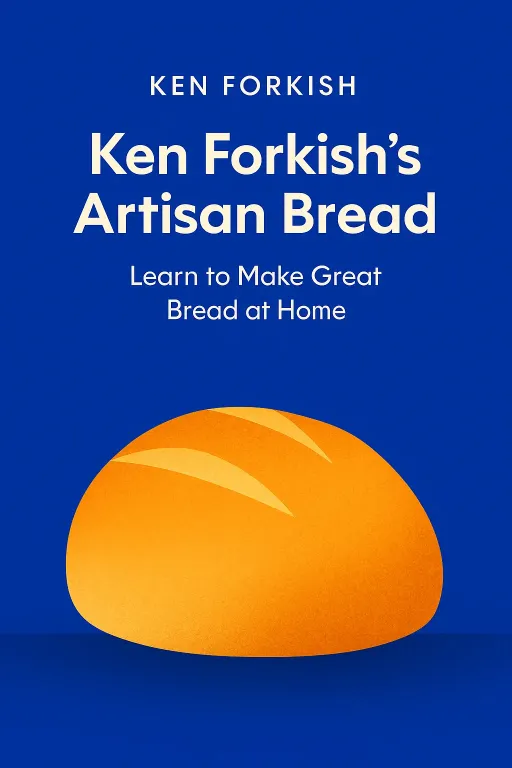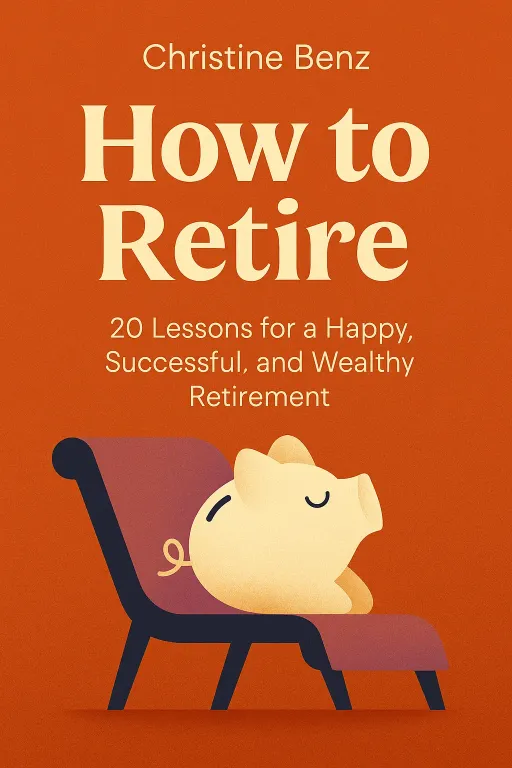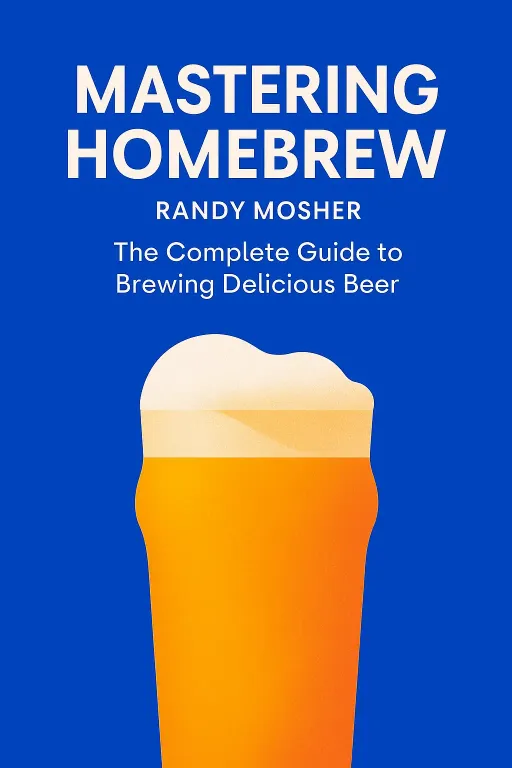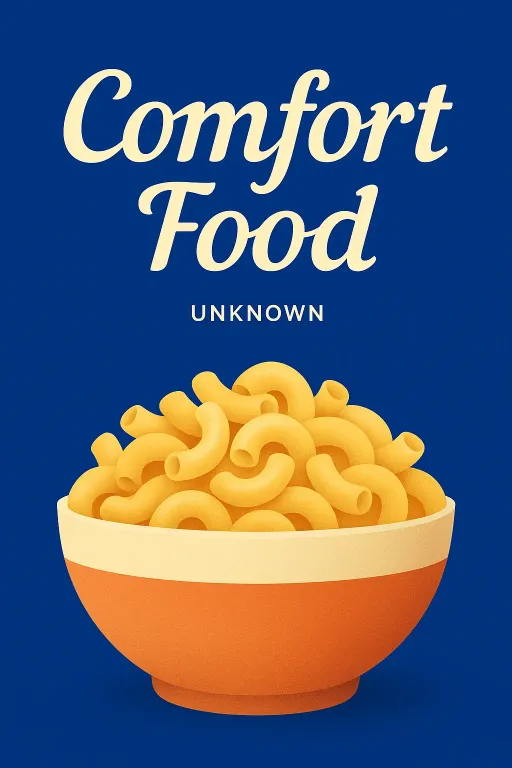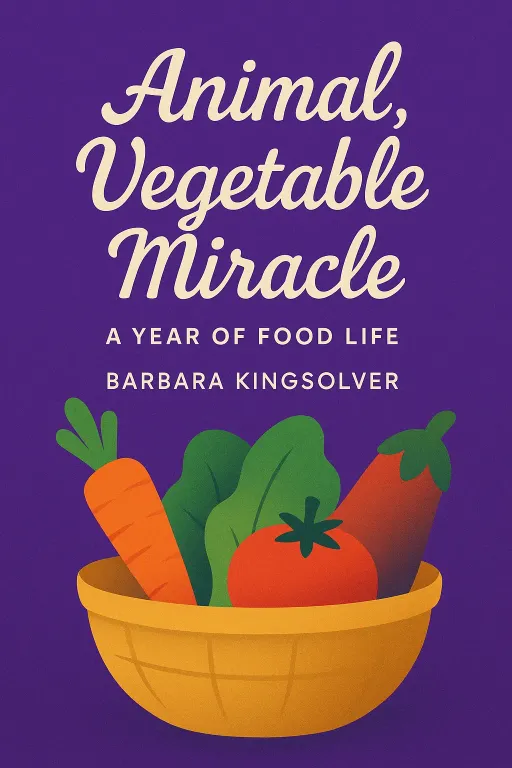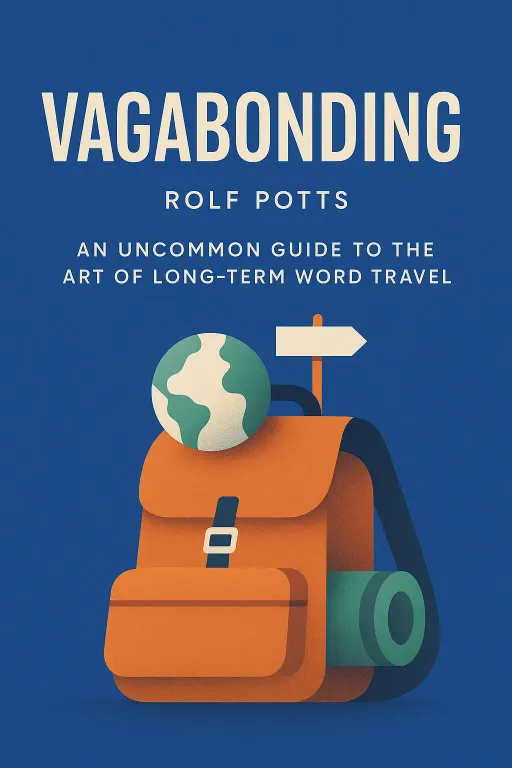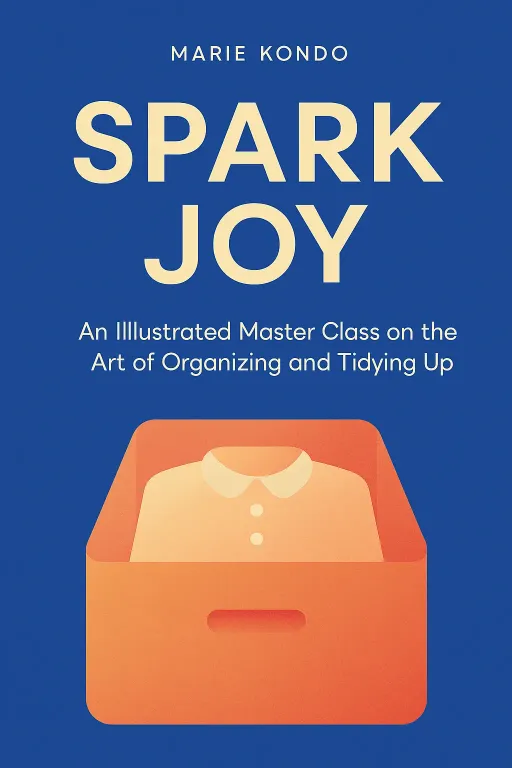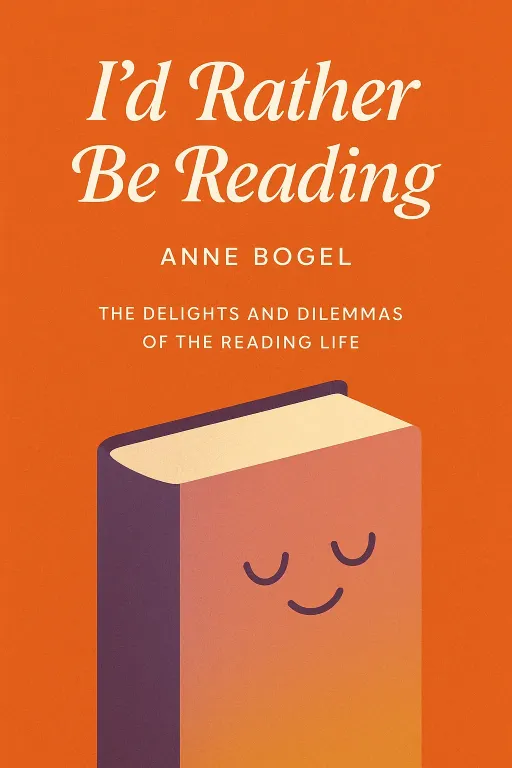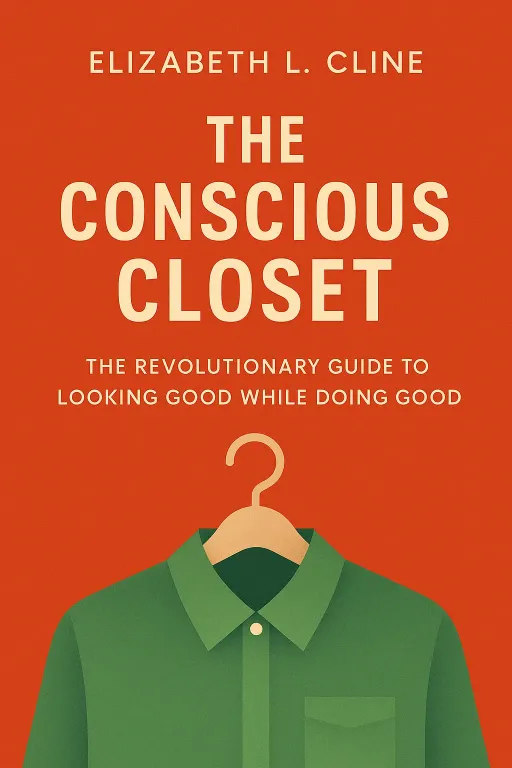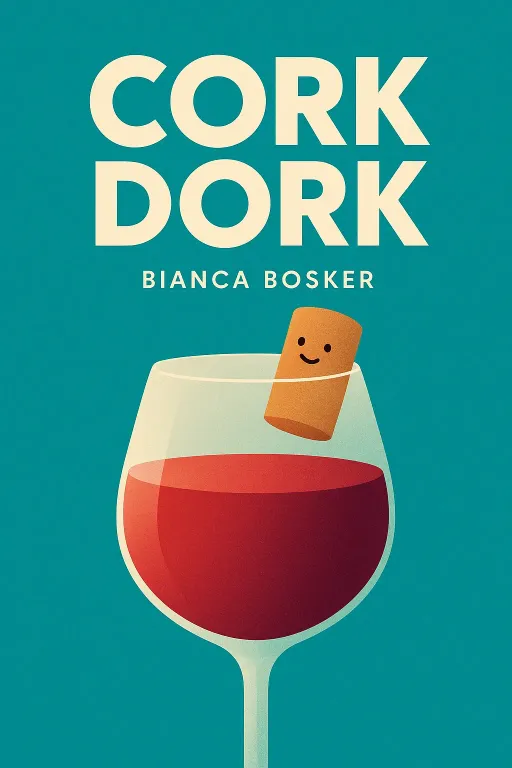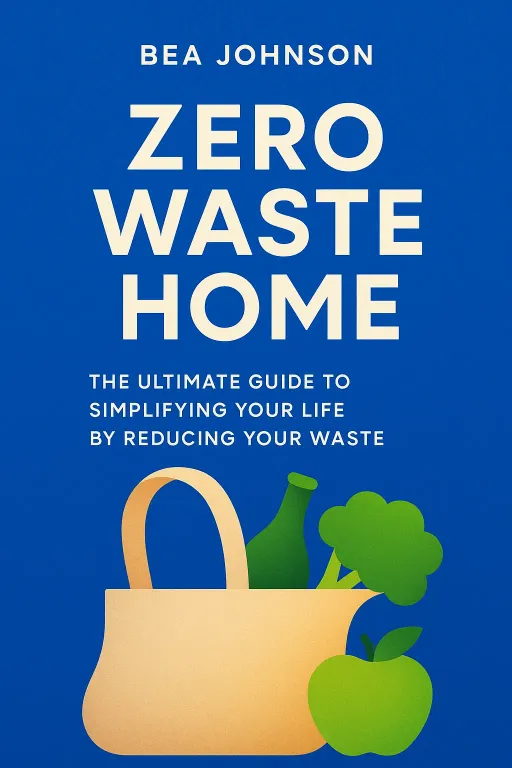
Beyond the Trash Can
11 minGolden Hook & Introduction
SECTION
Rachel: What if I told you that the average American family could save almost 40% on their annual household costs by doing one thing? And it's not investing in stocks or cutting coupons. It's by taking out the trash... almost permanently. Justine: Forty percent? That sounds like a fantasy. What's the catch? Is the one thing "stop buying food"? Rachel: No catch, just a radical shift in thinking. It comes from Bea Johnson, the author of Zero Waste Home. She's often called 'the mother of the zero waste lifestyle movement,' and she literally launched a global phenomenon from her own kitchen, figuring out how to fit her family of four's annual trash into a single quart-sized jar. Justine: A quart jar for a family of four? For a whole year? That sounds impossible. How did she even get to that point? Was she always this... intense? Rachel: That's the most fascinating part. It's the absolute opposite of how she started. Her journey wasn't a straight line from eco-warrior to guru; it was a messy, relatable U-turn from the heart of the American Dream. Justine: Okay, you have my attention. A U-turn from the American Dream sounds much more interesting than a lecture on recycling.
The 'Why': Redefining a Rich Life Beyond Consumerism
SECTION
Rachel: Exactly. Before the quart jar, there was a three-thousand-square-foot house in a California suburb. We're talking the whole nine yards: an SUV in the three-car garage, two massive refrigerators always stocked, an industrial-sized washer and dryer running constantly. Bea even talks about experimenting with hair extensions and acrylic nails. They were living the life we're all told to aspire to. Justine: That sounds... familiar. It’s the checklist of success, right? Big house, nice car, lots of stuff to show for your hard work. But I'm sensing a 'but' coming. Rachel: A huge 'but'. She describes this feeling of emptiness creeping in. Her husband, Scott, would spend his entire weekends just maintaining this huge property—mowing the lawn, fixing things. He once quoted his own father, who on his deathbed said, "I wish that I didn’t spend so much time caring for my lawn." That quote just haunted them. They had all this stuff, all this space, but they were spending all their time managing it, not living. Justine: Wow. That hits hard. The idea that your possessions end up possessing you. So what was the catalyst? What broke the spell? You don't just wake up one day and decide to sell everything. Rachel: It was a move. They decided to relocate to Mill Valley, a place where they could walk downtown and be more connected to a community. But they couldn't find the right house immediately, so they rented a small apartment for a year and put 80% of their belongings into a storage unit. Justine: Ah, the classic out-of-sight, out-of-mind experiment. Rachel: Precisely. And what they discovered shocked them. They didn't miss any of it. Not the extra furniture, not the kitchen gadgets, not the boxes of decorations. With only the essentials, their lives opened up. They had more time, more freedom. They spent weekends hiking and having picnics instead of doing chores. They realized that all that stuff in storage wasn't adding to their lives; it was a dead weight, a financial and mental burden. Justine: So they found out by accident that they were happier with less. Rachel: Completely. When they finally found a permanent home, it was half the size of their old one. They got rid of that 80% of their stuff for good. Bea has this amazing quote that sums it up: "Today, the less I own, the richer I feel." It’s this profound reversal of what we're taught wealth is. Justine: I love that. But I have to push back a little here, because this is where the book gets some criticism. It's a lovely story, but it's also a story of privilege, right? Being able to sell a huge house in California and move to a desirable place like Mill Valley isn't an option for most people. Some readers find the whole thing a bit elitist. Rachel: That's a totally fair and important point, and it's a controversy that has followed the movement. But I think Johnson's response would be that the core principle is universal, even if the scale is different. The point isn't that everyone needs to sell a mansion. The point is to consciously question what you bring into your life and why. It’s about asking, "Do I truly use, need, and love this?" Whether you live in a tiny apartment or a large house, that question is a powerful tool for simplifying and taking back control. The financial savings, she argues, make it more accessible, not less. Justine: Okay, so it’s less about the specific circumstances and more about the mindset. The act of questioning consumption itself is the key. Rachel: Exactly. It's about shifting from a life based on having to a life based on being. And that philosophical shift is the foundation for everything else. It’s the 'why' behind the 'how'.
The 'How': The 5Rs as a Practical System, Not a Dogmatic Rulebook
SECTION
Justine: That makes sense. So let's get into the 'how'. This is where the famous 5Rs come in, right? Refuse, Reduce, Reuse, Recycle, and Rot. Rachel: That's the system. And it's hierarchical, which is the part most people miss. It's not a flat list of options; it's a waterfall. The most powerful action is at the top. Justine: 'Refuse'. Okay, that sounds simple, but what does it actually look like in the real world? Are we talking about just turning down a free pen at a conference? Rachel: That's part of it! But it's bigger. It's refusing junk mail before it even enters your house. It's saying "no, thank you" to a plastic straw in your drink. It's refusing a plastic bag for the one item you're buying. It's creating a barrier at your front door so that waste doesn't even get a chance to become your problem. Johnson argues that every time you accept a freebie or a disposable item, you're voting for that system to continue. Justine: "Shopping is voting." I've heard that before. So 'Refuse' is the first line of defense. What about the others? 'Reduce' and 'Reuse' seem pretty straightforward. Rachel: They are, but with a twist. 'Reduce' is about consciously curbing your consumption—evaluating what you truly need versus what you want. 'Reuse' is where it gets creative. This is where you swap all your disposables for reusables. Paper towels become cloth towels. Ziploc bags become glass containers. She has this incredibly detailed story about her weekly grocery shopping routine, where she goes to the store armed with glass jars and cloth bags. She gets her cheese in one jar, olives from the olive bar in another, meat from the butcher in another. Justine: See, that's the part that sounds intimidating. I can just imagine the look on the face of the person at my local deli counter if I handed them a glass jar. Rachel: And Bea Johnson acknowledges that! She talks about the initial awkwardness, but also about how it starts conversations and how, over time, the vendors get to know you and it becomes a normal, easy routine. But this brings us to a crucial point about the book: it's not a rulebook for a life of hardship. It’s a guide to finding what works. And sometimes, it doesn't work at all. Justine: Oh, I love a good failure story. Please tell me she has some. Rachel: She has so many! This is what makes the book so human and relatable. She went through an extreme phase where she tried to make everything from scratch to avoid all packaging. She tells this story about trying to create a homemade mascara. She finally concocts a recipe, puts it on, and goes out to dinner with her girlfriends. Justine: I have a bad feeling about this. Rachel: She gets home, looks in the mirror, and she has full-on raccoon eyes. The mascara had completely melted and run down her face, and her friends hadn't said a word! Justine: That is the ultimate girlfriend betrayal! Oh, that's hilarious and awful. Rachel: There are more! She tried making a lip plumper out of stinging nettle. The result? Painful, unevenly swollen lips. She tried foraging for moss to use instead of toilet paper on a trip. Her husband basically had to stage an intervention. Justine: Okay, foraging for moss is definitely where I would draw the line. That's a hard no. Rachel: And that's her point! She tried the extremes and realized many of them were unsustainable, time-consuming, or just plain ridiculous. She writes, "While anything is worth trying, not everything is worth adopting." The goal is to find a sustainable balance between being easy and being green. Maybe you don't make your own butter, but you buy it in paper and compost the wrapper. Maybe you don't make your own mascara, but you find a brand that offers refills. Justine: That makes the whole concept feel so much more achievable. It’s not about becoming a perfect, off-the-grid homesteader. It’s about making a series of small, conscious upgrades. It’s a process of trial and error, not a purity test. Rachel: Exactly. The 5Rs are a framework for thinking, not a set of commandments. And the last two, 'Recycle' and 'Rot' (or compost), are the last resorts. You only recycle what you can't refuse, reduce, or reuse. And you compost all your organic waste. When you do the first three Rs effectively, the amount you have left for recycling and landfill becomes shockingly small. Justine: Hence, the quart jar. It all clicks into place. It’s not magic; it’s a system.
Synthesis & Takeaways
SECTION
Rachel: It's a system. And it's a system that has a ripple effect far beyond your trash can. Justine: So when you boil it all down, what's the one thing people get wrong about the Zero Waste lifestyle? Rachel: They think it's about the trash. It's not. The trash is just the metric, the symptom. The book's real, profound insight is that by systematically questioning every single thing that tries to enter your life—whether it's a plastic bottle, a piece of junk mail, or a new piece of jewelry—you are forced to define what is truly valuable to you. Justine: It’s a system for decluttering your entire life, not just your bin. You’re curating your existence. Rachel: You are curating your existence! You're taking back control from marketers and consumer culture. You stop living on autopilot. The book has been wildly popular, translated into dozens of languages, but it's also polarizing. Some readers find it life-changing, while others find it pretentious. I think that's because it holds up a mirror to our own habits, and that can be uncomfortable. Justine: It’s a challenge, wrapped in a practical guide. So for someone listening who feels overwhelmed by all this, what's the one, single first step they could take? Rachel: Go back to that first 'R': Refuse. That's the most powerful and simplest action. Just for this week, say 'no' to one small, disposable thing you don't truly need. Refuse the plastic straw. Refuse the paper receipt you're just going to throw away. Refuse the free sample. It's a tiny act, but it's the beginning of flexing that muscle of conscious choice. Justine: I love that. A small act of refusal as a big act of intention. We'd love to hear what you all refuse this week. Let us know on our socials, we're genuinely curious to see what you come up with. Rachel: This is Aibrary, signing off.
